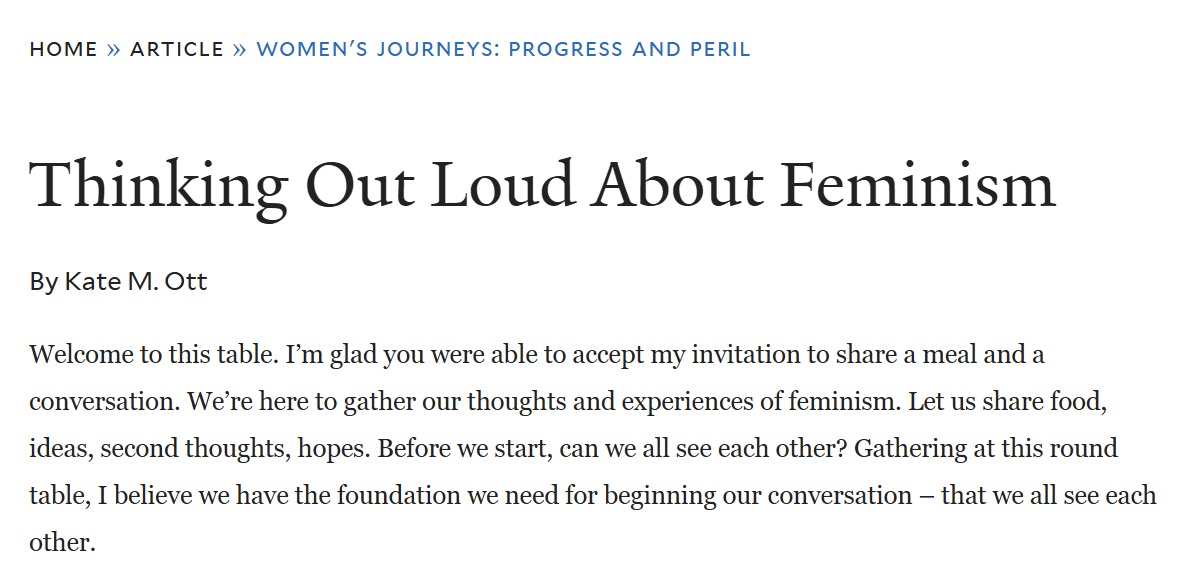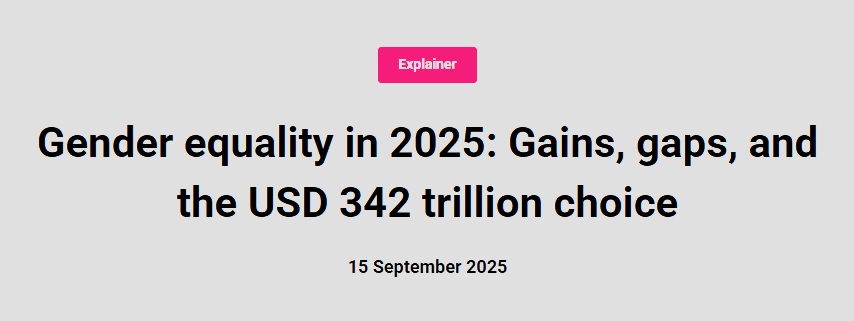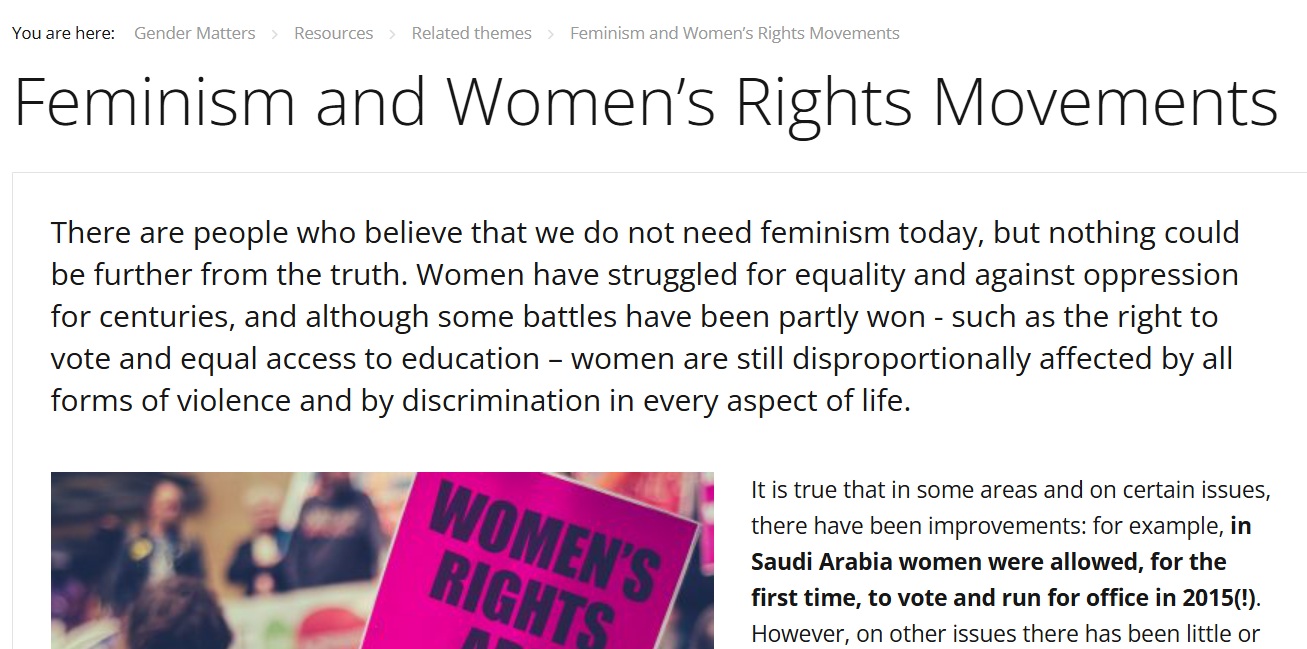Thinking Out Loud About Feminism

Through a fictional roundtable dialogue, this article explores diverse feminist perspectives, internal tensions, and the profound impact of issues like race, class, and gender identity on contemporary feminism.
Related Topics
This article explores the diversity and complexity of contemporary feminism through a fictional “roundtable dialogue.” Author Kate M. Ott invites six female friends with different backgrounds and perspectives, and through their conversation, demonstrates the multiple voices and ongoing tensions within the feminist movement.
Key Viewpoints and Intellectual Confrontations
Equality and Choice: Participant B represents early feminist views, emphasizing the pursuit of “equality” with men through education and entering traditionally male occupations. L raises questions, asking whether women choosing traditional housewife roles means failure. This reflects women’s struggle between pursuing personal choice and meeting group expectations.
Race and Class Critique: T (as a feminist) and M (representing Global South perspectives) offer sharp criticism of mainstream “white, First World” feminism. They point out that without considering race, poverty, and global inequality, feminism could become irrelevant or even inadvertently exacerbate oppression. M emphasizes that true feminism requires the privileged to “get less” and see differences clearly.
Gender Identity and Queer Theory: J represents a queer feminist perspective, proposing that gender is a “performance” and that “women” and “female bodies” should not be the only connecting threads of the movement. She calls on feminists to think about how the movement should proceed when gender is no longer binary.
Religion and the Church: Both the author and T explore from their respective faith backgrounds the role that churches and religion play in gender oppression, calling for advancement of gender justice within faith communities.
Author’s Summary and Prospects
As the initiator and summarizer of the dialogue, author Kate M. Ott acknowledges her privileges as a “white, American, educated, upper-class woman.” She believes feminism should be a “justice-seeking praxis” that begins with women’s real-life experiences but must transcend simple “equality” models. She emphasizes that future feminist movements should not try to eliminate gender, racial, and cultural differences, but should seek justice “because of our differences.” This is an ongoing dialogue that requires everyone, including those with different opinions, to sit down, see each other, share, and listen.
This article was summarized and written by Gemini based on “Thinking Out Loud About Feminism.”
Related Articles

Beijing+30: A Critical Moment for Global Women's Rights
2025 marks the 30th anniversary of the Beijing Declaration and Platform for Action. Despite progress, 24% of countries report backlash on gender equality, and 10% of women still live in extreme poverty. This is a critical moment to renew commitments.

Feminism and Women's Rights Movements
This article provides an in-depth exploration of the definition of feminism, its historical development (including three waves and cyberfeminism), and its importance in contemporary society. It details the various forms of gender discrimination and explains why specific women's rights are necessary, emphasizing that women's rights are human rights.

Patriarchy Is Regaining Ground: UN Chief Warns of Unprecedented Threats to Women's Rights
UN Secretary-General António Guterres issues stark warning at the 2024 Commission on the Status of Women: 'Patriarchy is far from vanquished; it is regaining ground.' From Afghanistan to America, from digital spaces to political stages, women's rights are under systematic attack and decades of progress are being reversed.
Support Our Work
If this content has been helpful to you, please consider supporting us to continue curating quality feminist resources
☕ Buy me a coffeeComments & Discussion
Share your views and feelings about this article
Join the Discussion
Share your views and feelings about this article
Loading comments...